
The Free Press

MANCHESTER, NH — “Why in the world is Nikki Haley holding a rally in the middle of nowhere?” a talking head asked Katy Tur during her midday MSNBC show. It was last Tuesday, and Tur was in Manchester, New Hampshire. So was I, preparing to drive halfway up the state to a sprawling old resort in the White Mountains. In a snowstorm.
The day before, Haley had been absolutely crushed by Donald Trump in the Iowa caucus. In her last Iowa speech, the former South Carolina governor claimed that her 19.1 percent finish meant that it was now a “two-person race,” between her and Trump—which was some bold framing given that she’d come in third, behind even Ron DeSantis. (By Sunday, though, it had become true with DeSantis dropping out.)
The conventional wisdom said that if Haley didn’t win New Hampshire—or at least come close—she was cooked. With Trump at 50 percent in the polls, and Haley at 34 percent, she had to make up a 16-point deficit. And she had only six days to do it.
With its history of making or breaking presidential candidates, New Hampshire has always loomed large in presidential politics. And yet Haley’s first big post–Iowa rally was in the middle of nowhere, in the middle of a snowstorm. I could only shake my head as I slogged my way north.
The Haley campaign had promised me an interview once I got to the Mount Washington Hotel and Resort in Bretton Woods—the same resort where the postwar economic order was settled in 1944. Slowed by the snow, I arrived shortly before we were supposed to talk. Haley strode smartly into a large, mostly empty ballroom where I’d been deposited by her team. If she was discouraged by the Iowa result, she didn’t show it.
At her town halls in Iowa, I’d mostly seen voters kicking the tires. “I liked her okay,” a retired farmer told me after one event, “but I’m strong for Trump.” So where was she going to find enough Republican voters to overcome the brick wall of Donald Trump? Everyone knows that the typical MAGA voter is white, rural, and working class. But what constitutes her base?

“I don’t have a base,” Haley replied. “I don’t just want a certain type of person. I want everybody. That’s the only way we’re going to heal our country.” She added, “That’s my whole thing. I know they’re saying, you know, ‘She’s getting independents to vote for her.’ ”
Indeed, they were. Earlier that day, Trump and DeSantis, who was still sporadically campaigning in New Hampshire, had both attacked her for “infiltrating” (Trump’s word) the Republican primaries with Democrats and liberals to vote for her in open primaries. She rolled her eyes when I brought that up. Their “allegation” was true—but so what?
“You have to want everybody,” Haley said. “It doesn’t change who I am. It doesn’t change the solutions I think we need going forward. But it does mean that I’m going to treat everybody with respect. I’m going to let them know what I’m about, what I want to do, and how I want to do it. I’m not going to push people away. I’m going to bring people in. That’s what I did in South Carolina. You’re supposed to work on lifting up everybody, not just a select few.”
When the interview was over, I headed upstairs to the large room where the rally was being held. I was astounded. It was nearing six o’clock, and there had to be a foot of snow on the ground by then. The roads were treacherous. Yet the place was packed—every seat was taken, and the standing room was six deep. And unlike most of the Iowa town halls I saw, there was real enthusiasm, with people laughing to each other about how long it had taken to get there in the storm.
For a fleeting moment I thought: maybe this isn’t so hopeless after all.

One reason the MAGA faithful are so difficult to peel away is that they love the way their guy’s political career has been built on giving the establishment his middle finger. That’s what they want to do, too. The loss of good jobs, the flood of immigrants at the border, all that fentanyl killing their kids—they have grievances. And they blame the political establishment. Which is why they’re willing to ignore—or justify—Trump’s indictments, his instigation of the January 6 attack, and even his promise to be a dictator (at least on “day one”).
The reason they’ll never warm to Nikki Haley is that, in their eyes, she is the political establishment. A politician who talks about the need for the nation to heal, or the value of compromise, or the importance of gaining support from Democrats—that kind of pre-Trump, old-school sentiment makes them want to puke. “Fuck her,” former Trump consiglieri Steve Bannon said last month at the Turning Point USA conference, perfectly summing up the MAGA sentiment.
I sent Bannon a text, asking for more details. He was more than happy to oblige. Shortly before the 2018 midterms, he told me, he was giving a speech at Bloomberg’s London headquarters. Someone slipped him a note saying that Haley had resigned her position as Trump’s ambassador to the United Nations, a job she had held for the first two years of his presidency.
“She couldn’t wait for three and a half fucking weeks,” Bannon said. “She did that to send a signal to the establishment: ‘I’m not with him.’ ” Now, she’s their candidate—“their vessel,” as he put it. He pointed to a fancy New York fundraiser she will attend at the end of the month: “It’s one of the most impressive attendee lists I’ve ever seen,” he said. He did not mean this as a compliment.
The fundraiser has 25 co-chairs, many of them bold-faced billionaires, like Henry Kravis and Ken Langone. One of the co-chairs, Kristin Lemkau, a high-ranking J.P. Morgan executive, has raised money for Democrats in the past. (None of the co-chairs I reached out to was willing to speak to me on the record—not surprising given the threats Trump has made recently to punish wealthy Republicans who don’t donate to his campaign.)
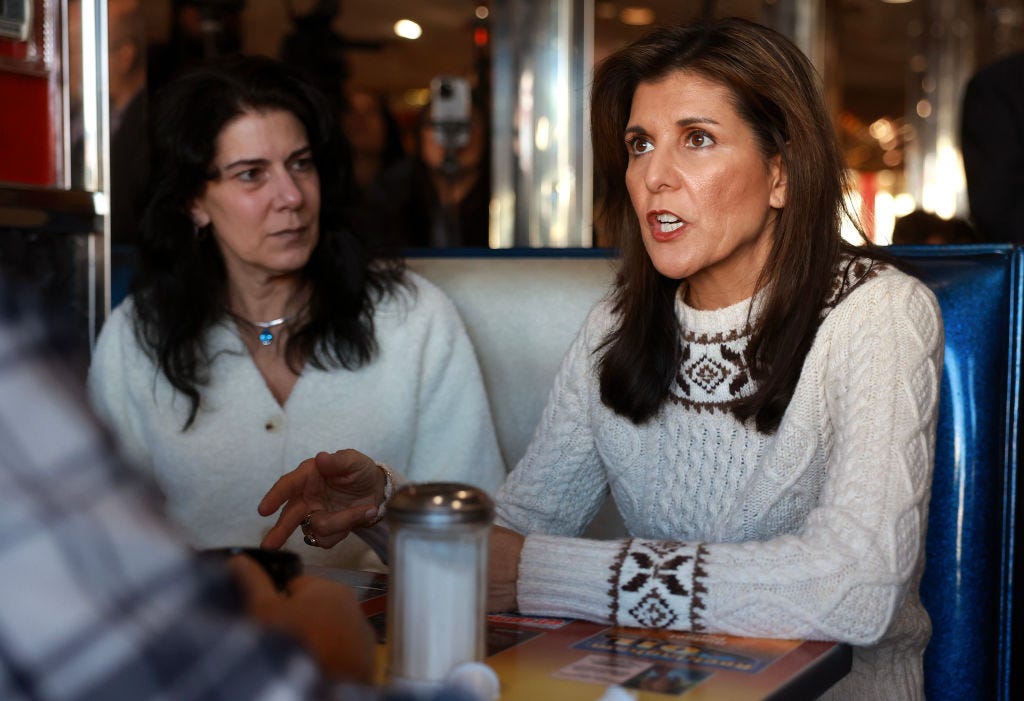
Bannon described Haley to me as “slippery” and said that he was convinced that the establishment’s real goal is to position her to be Trump’s vice president.
“They want to get her in the West Wing,” he said. “They’re gonna say Trump needs a woman, and that she will bring in the non-MAGA votes Trump needs. And now she has Fox saying every morning how great she is because she’s got Rupert Murdoch too. If they succeed, it’ll destroy Trump’s second term,” he said. His goal, he said, was to make sure it didn’t happen.
“I’ve led the jihad to keep her off the ticket,” he told me. “I’m proud of that.”
At this point, of course, this is hardly a jihad he has to wage: the chances of Haley being Trump’s vice-presidential candidate are slim to none. In New Hampshire, Trump said that Haley lacked “presidential timber,” and she would “probably” not be his vice-presidential candidate. Meanwhile, Don Jr. told Newsmax last week that Tucker Carlson was someone his father was considering. (Haley said that she is not interested in being on the ticket with Trump.)
Bannon wasn’t quite done yet. “Nikki Haley,” he concluded, his voice dripping with contempt, “is the font of all evil.”

When I told Haley that MAGA leaders like Bannon viewed her as an elitist whom the coastal elites were hoping to use to regain power, she actually seemed a little taken aback. “I mean, I grew up in a rural town in South Carolina,” she replied. “You can say a lot of things about me but you can’t say I don’t understand what that life is like. I do understand that. The whole reason I was a Tea Party governor was because I understood exactly those people who felt unheard. That’s how I won.”
Her self-image has always been that of the outsider pushing her way in, and forcing the insiders to change. As a child growing up in Bamberg, South Carolina (population: 2,977), she was the daughter of Sikh Indian immigrants; her father wore a turban. There were plenty of painful moments, she told Politico a few years ago. A Clemson graduate and an accountant who did the books for her mother’s thriving clothing store, she was a complete unknown when, in 2004 at the age of 32, she successfully ran against the longest serving legislator in the state. When she campaigned for governor in 2010, it was déjà vu all over again, in the immortal words of Yogi Berra. This time she had three opponents, all men, all with much higher name recognition. But she convinced Sarah Palin to endorse her—and it was game over after that. Her national reputation was cemented when, after a gunman killed nine African Americans in the Charleston church shooting in 2015, she convinced the legislature to remove the Confederate flag from the Statehouse grounds without creating a partisan brawl.
One can hardly call the United Nations ambassador an outsider, but she played by a set of rules that hadn’t been seen before in that sphere. When 128 countries voted to reject the Trump administration’s recognition of Jerusalem as Israel’s capital, Haley hosted a reception—and invited delegates only from the nations that had sided with the U.S. Her husband Michael is an officer in the South Carolina National Guard, currently deployed in Africa. The Haleys were not wealthy. But when she left the UN, she landed a $350,000 book advance, and made speeches for a reported $200,000 a pop to organizations like Barclay’s, the giant banking concern, and Linden Capital Partners, a private equity firm. In other words, the establishment.

Another of her vociferous critics, Rand Paul, says that the millions she has made on the speaking circuit is her payday “to become part of the team.” The Kentucky senator describes himself as “Never Nikki” because she is an interventionist who wants to keep sending funds to Ukraine and Israel to support their wars. Ann Coulter, the right-wing commentator, mocks her because she is the daughter of Indian immigrants. Gavin Wax, the conservative activist, recently told Politico that “There’s only one good thing about Nikki Haley. It’s that everyone in MAGA hates her guts.”
And then, of course, there’s the former president himself, who has been throwing everything but the kitchen sink at her as he tries to finish her off in New Hampshire. “The people behind Nikki Haley are pro-amnesty, pro-China, they’re pro-open borders,” he said at a rally on Thursday. “She wants open borders, don’t kid yourself.” At a Trump rally in Manchester over the weekend, mention of her name was met with sustained boos by the crowd. “She’s made an unholy alliance with the RINOs, the Never Trumpers, Americans for no prosperity, globalists, the radical left communists,” Trump went on and on. He calls her by her first name, Nimarata, just like he once used to employ Barack Obama’s middle name, Hussein.
When I first started following the Haley campaign in Iowa, she treated Trump gently, clearly hoping she might be able to attract some of his faithful. (Her standard line: “I think Trump was the right president in 2016. . . but rightly or wrongly, chaos follows him.”) When she landed in New Hampshire, though, she ratcheted up the criticism a notch. But she diluted that criticism by pairing it with what she claimed were Joe Biden’s flaws. Trump was too old to be president, just like Biden, she said. (Haley is a relatively sprightly 52.) And both men were “distracted by their own investigations and their own grievances.”
As the week went on, with the gap between her and Trump still in double digits, she seemed to have given up trying to sweet-talk his supporters. When, at one appearance, Trump kept using her name instead of Nancy Pelosi’s, Haley saw her opening. “When you’re dealing with the pressures of a presidency, we can’t have someone else that we question whether they’re mentally fit to do this—we can’t,” she said in the town of Keene on Saturday. She also started criticizing—finally—his coddling of dictators. “You don’t praise dictators and thugs who want to kill us,” she said in Nashua. “It’s not good for us.”
Better late than never, I suppose. But it still raises the question: In the face of Trump’s unmovable base, where on God’s earth is she going to get enough votes?
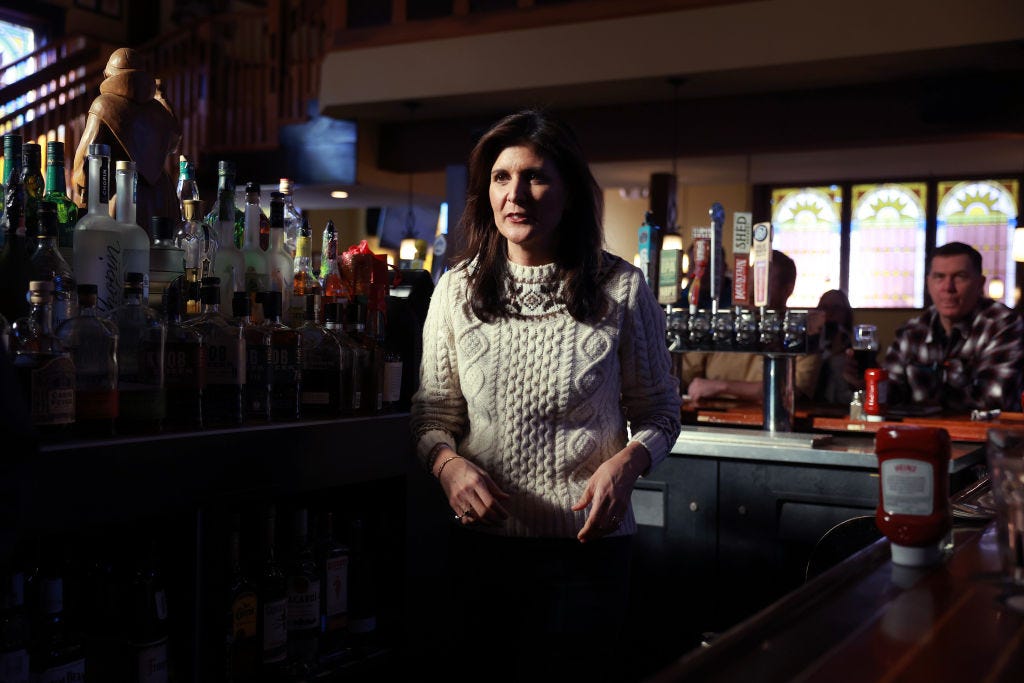
In most of the general election polls so far, Haley is far ahead of Joe Biden—by double digits in some of them. (Trump is neck and neck with Biden in those same polls.) It makes sense. When you meet Haley voters, you quickly realize that she appeals to people—whether Democrats, Republicans, or independents—who either never voted for Trump, voted for him in previous elections but can’t stomach him now, or lean toward Joe Biden but think he’s too old to tackle another term. They’re usually college-educated urbanites—and they’re also usually people who long for politics the way it used to be, before it became so ugly. (The one county Haley won in Iowa, Johnson County, is home to the University of Iowa. Her margin of victory was one vote.)
One wealthy Democrat told me he was a Haley supporter because he was disappointed in Biden. “I think it’s time for us all to get over our sanctimony and back someone who is sane and reasonable. She’s thoughtful, she’s experienced, and she doesn’t bullshit. That’s enough for me.” Ozzie Palomo, the managing director of Chartwell Strategy Group, who has been raising money for Haley in New England, says that she is a “Republican who can set out a position without scaring people. Her ability to communicate without scaring half the country is a real strength.”
A Republican friend in New York—someone who shocked me when she first came out as a Trump supporter—sent me an email saying that she believed that “after the events of January 6, Trump is disqualified from being president.” She added, “Nikki Haley has the potential to be something of a savior if there is an appetite for returning to a more traditional leader. Unfortunately, I don’t know if that’s the case. But I’m hopeful.”
That’s the kind of voter Haley has to have. And in truth, there are far more people who can’t abide Trump than there are people who adore him. But if you’re a Republican, you can’t get to them until the general election. Unless, that is, you can convince independents to vote in one of the two dozen Republican primaries that are open to independents. (Some are open to Democrats as well.) That is the essence of Haley’s strategy. It’s the political equivalent of a Hail Mary pass, but it’s not crazy. New Hampshire has just such an open primary.

Prior to the Iowa results, Neil Levesque, the director of the New Hampshire Institute of Politics at Saint Anselm College, said he thought Haley might be able to pull it off. “I think she cuts through because she has a conservative message but she is a middle-aged accomplished woman. We have one of the most highly educated populations. She is the hardest-working candidate. Her campaign has touched a lot of people here.” He added, “In a small place like New Hampshire, it is a lot easier to gain steam if you have the right message”—which he thought she did.
After Iowa, I sent a text to Levesque to ask if he had changed his mind. “No,” he texted back. “It’s a tough hill to climb if you look at the data.” But possible, I asked? “Of course,” he said.
Jennifer Horn, the former chair of the New Hampshire GOP, thinks it won’t work. “Here in New Hampshire we always talk about independent voters coming in on primary day and voting in whichever party they want,” she told MSNBC. “And people always talk about, is something crazy going to happen? Is something big going to happen? And it never does. . . . I don’t see a huge influence on the number of voters Nikki Haley gets here.”
When DeSantis dropped out on Sunday, he immediately endorsed Trump—no big surprise, of course. He took one last shot at Haley, calling her a member of “the old Republican guard of yesteryear—a repackaged form of warmed-over corporatism.” Will his supporters gravitate back to Trump? That is the most likely scenario. As the days dwindled, New Hampshire remained a daunting climb.
Nor will it get any easier when Haley heads to her home state of South Carolina, which holds its primary in late February and which Trump easily took in 2016 and 2020. The polls currently show her 30 points behind. Lindsey Graham, the state’s senior senator, lined up behind Trump early on. And on Friday, South Carolina’s other Republican senator, Tim Scott—whom Haley had appointed to his seat in 2013—gave Trump a full-throated endorsement as well. This has to hurt. A well-liked black senator, Scott’s endorsement could have been huge for Haley in her home state. For that matter, an endorsement from Chris Christie, who left the race just before the Iowa caucus, could be a big help, since his supporters were fervently anti-Trump. But the only comment he’s made about her came during a hot mic moment earlier this month when he said that “she’s gonna get smoked,” and “she’s not up to this.” (Neither Scott nor Christie returned emails requesting comment.)
Yes, Haley has made mistakes—failing to acknowledge that slavery caused the Civil War was particularly cringeworthy—but she hasn’t let any of that slow her down. She had five town halls in New Hampshire on Friday, four on Saturday, and had eight—eight!—on tap yesterday. “Everyone expects it to be Trump in a walk,” Neil Levesque told me. “If she wins by one vote, it’ll be an earthquake.”
At this point, even a close second would do the trick—she’ll have “beaten expectations,” as they say. South Carolina? She’ll have a month to remind voters that she was a competent governor who got things done. If she ekes that out, she then has Super Tuesday on March 5. And if she wins some primaries outright, and comes close in others, it’s suddenly a nasty, protracted fight all the way to the convention. The idea that there can be an alternative to a Trump-Biden rematch will have become real. Though the odds are against her, this is what she is banking on.
I asked Haley if she was thinking that far ahead. No, she said. “What I do think about is managing my funds, making sure I have enough money to be on TV, and making sure that when we get attacked, I have enough to defend myself. But that’s as far as I think ahead. What I do think is: I want to be stronger in New Hampshire than I was in Iowa. I want to be stronger in South Carolina than I was in New Hampshire. I do think that far, but that’s about it.”
She circled back to something we’d talked about earlier: that impenetrable Trump base. She wasn’t completely ready to give up on them yet.
“For all the people who are saying, ‘How do you do it? How do you do it?’ Look, if I had listened to all those people, I wouldn’t have run against the longest serving legislator in a primary. I wouldn’t have run in a governor’s race as the Tea Party candidate. I wouldn’t have taken the stances that I take. I don’t let the polls guide me. I look at. . . What do normal people want to hear? What do they want? Does Trump have a stronghold? Absolutely. But my job is not to say, ‘Oh, I’ll never get them.’ My job is to let them know that I agree with a lot of those policies too. But there’s a better way.”
Joe Nocera is a columnist for The Free Press, and the co-author of The Big Fail. Follow him on X (formerly Twitter) @opinion_joe.
And to support more of our work, become a Free Press subscriber today:





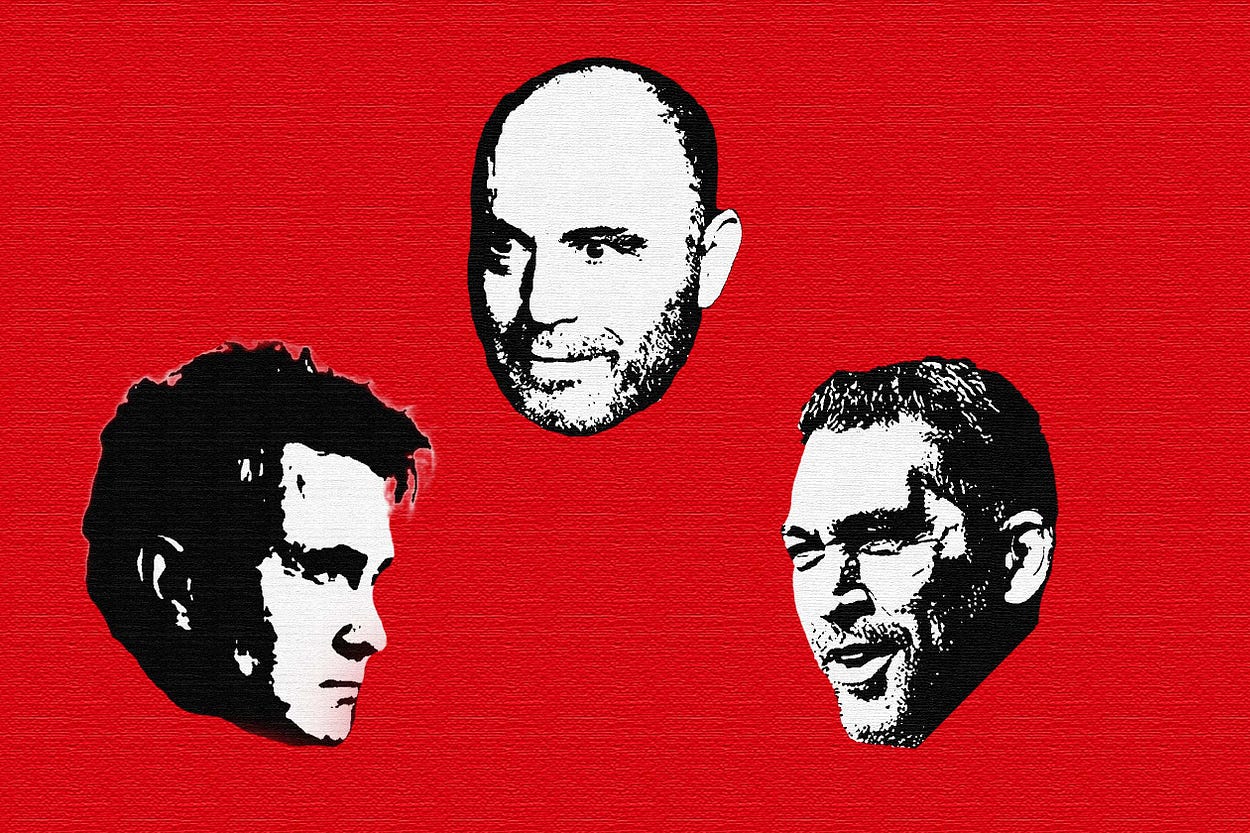

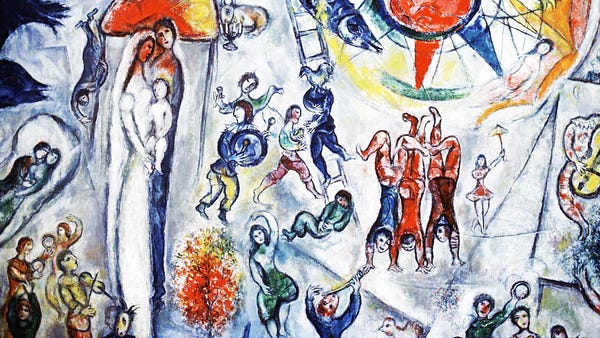

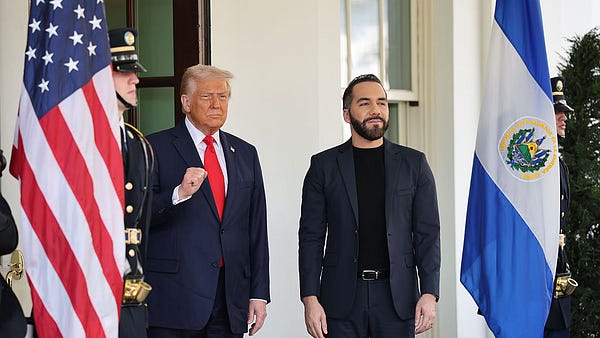

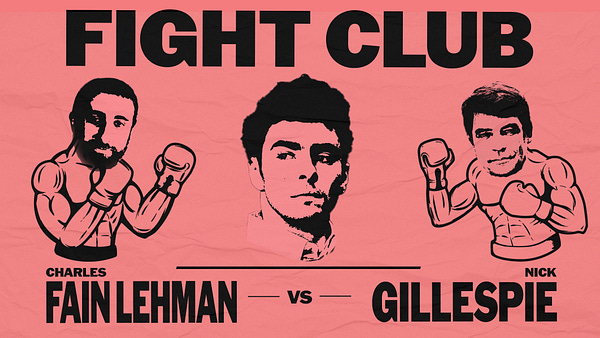

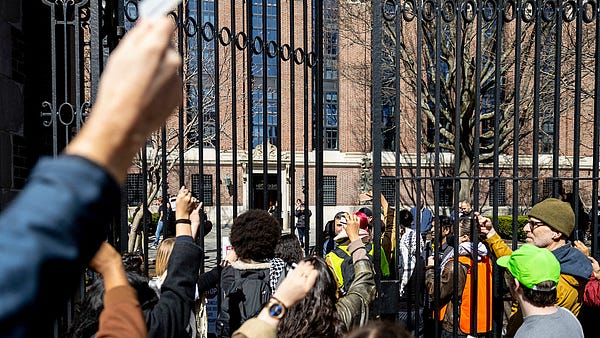

Pope Francis apparently missed this despicable scoundrel and the rampant pedophilia in his Church when he was busy opining on our candidates for President.
I hope we hear from Maureen Dowd soon on this travesty.
She's Biden/Bribem in a pantsuit, another neocon owned by the Mil-Ind complex.